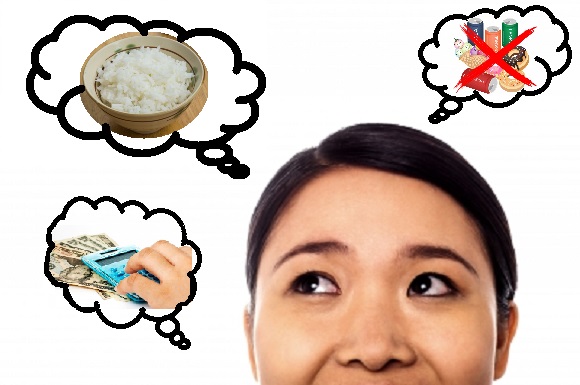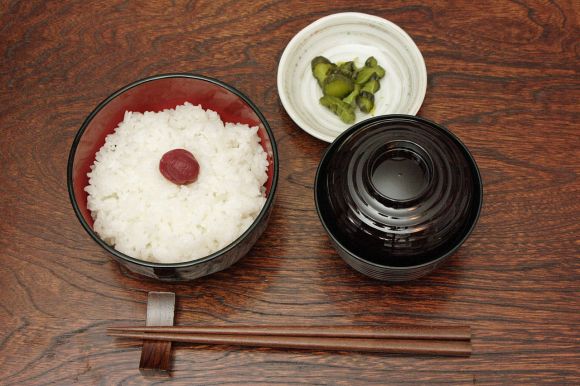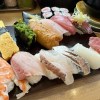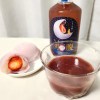
Whether we like to admit it or not, where we were brought up has a huge impact on the person we become. From our way of thinking to what foods we prefer, it’s hard to deny that our environment shapes our personal identity.
While some people come from nations that are veritable melting pots of backgrounds, languages, and cultures, others come from a country with much more homogeneity. Japan is one such country, and its people have a strong sense of identity—though they may not readily admit it.
But often during a trip to a foreign country, there comes a moment of self-realization where they become aware of just how Japanese they really are. A recent survey asked Japanese travelers to identify the five moments they felt most Japanese when abroad. The results are really quite telling.
Taken by website goo Ranking, the survey asked 1,731 Japanese people between April 24 and May 8 this year to vote for the moment during a trip overseas that they became most aware of their Japanese-ness. Here’s how the results came out:
5. Being surprised when an employee couldn’t calculate the change (128 votes)
I would be surprised too if a store clerk struggled with a quick calculation, since almost everywhere you go any transaction you make is calculated by the register. But if it was the case that a shop or restaurant employee actually couldn’t count out the change they were supposed to give back, well… Then again, having worked through high school and university in customer service, I do have sympathy for store employees. The hours are long, the work is repetitive, customers can be awful… Sometimes brain-farts happen, folks!
 Image: FreeDigitalPhotos/ Serge Bertasius Photography
Image: FreeDigitalPhotos/ Serge Bertasius Photography
4. Finding the sweets or beverages too sweet (174 votes)
Japanese confectionaries are distinctive for their subtle sweetness, so as to allow the consumer to enjoy the distinct flavors of the ingredients without being overwhelmed by a huge punch of sugar in the palate. As for beverages, though, I have to disagree. Coca-cola and Pepsi are just as widely sold here in Japan as they are anywhere else, not to mention all the super sugar-laden teas, coffees, and fruit drinks, which are to me, personally, just too sweet, so it surprises me that so many Japanese people would be shocked by the sweetness of food and drinks outside their country.
3. Not being able to handle the big portion sizes at restaurants (78 votes)
I’m not too sure about other countries, but America at least is known for serving rather large portions. Yes, this all depends on where you go for your meal, but in general, when compared to the average size of a meal you’d receive at a restaurant in Japan, we Americans do tend to consume quite a bit more.
2. Being shocked at the poor customer service (212 votes)
What constitutes “good” and “bad” service is entirely subjective, as each individual has their own idea of how they want their dining experience/ hotel stay etc to be. Cultural differences also determine what is expected of an employee towards customers. In Japan, the interaction is much more formal than what you would expect in the United States, where more casual, friendly interactions between customers and employees are desired. For the average Japanese patron, however, customer service outside of their homeland undoubtedly comes across as rather lacking, since Japanese store clerks are trained to follow set scripts and carry out actions in a very specific way.
 Image: Wikipedia
Image: Wikipedia
1. Longing for a bowl of plain white rice (341 votes)
By a landslide margin, the number one instance when Japanese tourists overseas realized, “Yep, I’m Japanese after all,” was when they wished they had a steaming-hot bowl of plain white rice to accompany their meal. It’s not so surprising when you think about how much importance rice has played throughout their country’s history, and how much it is still consumed by each individual every day (it wouldn’t even be unusual to be served rice at every meal of the day). Some Japanese will insist that the rice grown in such-and-such region tastes the best, or that using good water when cooking rice really enhances the flavor, so don’t try to tell them they can substitute Japanese sticky white rice for the inexpensive plain white rice you generally find in US supermarkets either. It’s just not the same!
And there you have it: things that make the Japanese feel Japanese. Any of you, fellow expats and travelers, have a similar moment of realization while overseas in which you truly felt you were the nationality you were born as?
Source: goo Ranking
Top image: FreeDigitalPhotos/ 1, 2, 3, 4 (edited by RocketNews24)

 Japan’s abysmal ranking for rice consumption even catches Japanese Netizens off-guard
Japan’s abysmal ranking for rice consumption even catches Japanese Netizens off-guard This all-rice meal is the dream dinner for carb loading
This all-rice meal is the dream dinner for carb loading Japan’s second-largest convenience store chain changes service policy for sake of foreign workers
Japan’s second-largest convenience store chain changes service policy for sake of foreign workers Godiva creates a new drink with Japanese sake starter
Godiva creates a new drink with Japanese sake starter Top 10 food disasters prepared by Japanese wives who have extraordinary talent in the kitchen
Top 10 food disasters prepared by Japanese wives who have extraordinary talent in the kitchen Beautiful new Final Fantasy T-shirt collection on the way from Uniqlo【Photos】
Beautiful new Final Fantasy T-shirt collection on the way from Uniqlo【Photos】 Disney princesses get official manga makeovers for Manga Princess Cafe opening in Tokyo
Disney princesses get official manga makeovers for Manga Princess Cafe opening in Tokyo Randomly running into a great sushi lunch like this is one of the best things about eating in Tokyo
Randomly running into a great sushi lunch like this is one of the best things about eating in Tokyo Is the new Shinkansen Train Desk ticket worth it?
Is the new Shinkansen Train Desk ticket worth it? We tried Japan’s Strawberry Daifuku? liqueur, one of three dessert-themed liqueurs
We tried Japan’s Strawberry Daifuku? liqueur, one of three dessert-themed liqueurs New Studio Ghibli bedding sets are cool in all senses of the word
New Studio Ghibli bedding sets are cool in all senses of the word Foreign English teachers in Japan pick their favorite Japanese-language phrases【Survey】
Foreign English teachers in Japan pick their favorite Japanese-language phrases【Survey】 Is Starbucks Japan’s new Gohobi Melon Frappuccino really the ultimate melon Frappuccino?
Is Starbucks Japan’s new Gohobi Melon Frappuccino really the ultimate melon Frappuccino? This northern Tokyo capsule hotel is cheap, clean, comfortable, and has amazing amenities
This northern Tokyo capsule hotel is cheap, clean, comfortable, and has amazing amenities J-pop megastar Utada Hikaru releases new video and recording of “Traveling”【Video】
J-pop megastar Utada Hikaru releases new video and recording of “Traveling”【Video】 We try out “Chan Ramen”, an underground type of ramen popular in the ramen community
We try out “Chan Ramen”, an underground type of ramen popular in the ramen community Our Japanese reporter visits Costco in the U.S., finds super American and very Japanese things
Our Japanese reporter visits Costco in the U.S., finds super American and very Japanese things New Pokémon cakes let you eat your way through Pikachu and all the Eevee evolutions
New Pokémon cakes let you eat your way through Pikachu and all the Eevee evolutions There’s a park inside Japan where you can also see Japan inside the park
There’s a park inside Japan where you can also see Japan inside the park Japanese convenience store packs a whole bento into an onigiri rice ball
Japanese convenience store packs a whole bento into an onigiri rice ball Hanton rice — a delicious regional food even most Japanese people don’t know about, but more should
Hanton rice — a delicious regional food even most Japanese people don’t know about, but more should Final Fantasy, Kingdom Hearts, and Dragon Quest pet product line announced by Square Enix
Final Fantasy, Kingdom Hearts, and Dragon Quest pet product line announced by Square Enix Studio Ghibli releases Kiki’s Delivery Service chocolate cake pouches in Japan
Studio Ghibli releases Kiki’s Delivery Service chocolate cake pouches in Japan Japan’s bone-breaking and record-breaking roller coaster is permanently shutting down
Japan’s bone-breaking and record-breaking roller coaster is permanently shutting down New definition of “Japanese whiskey” goes into effect to prevent fakes from fooling overseas buyers
New definition of “Japanese whiskey” goes into effect to prevent fakes from fooling overseas buyers Foreign passenger shoves conductor on one of the last full runs for Japan’s Thunderbird train
Foreign passenger shoves conductor on one of the last full runs for Japan’s Thunderbird train Kyoto bans tourists from geisha alleys in Gion, with fines for those who don’t follow rules
Kyoto bans tourists from geisha alleys in Gion, with fines for those who don’t follow rules Studio Ghibli unveils Mother’s Day gift set that captures the love in My Neighbour Totoro
Studio Ghibli unveils Mother’s Day gift set that captures the love in My Neighbour Totoro Domino’s Japan now sells…pizza ears?
Domino’s Japan now sells…pizza ears? Toyota built a life-sized Miraidon Pokémon and are letting people test drive it this weekend
Toyota built a life-sized Miraidon Pokémon and are letting people test drive it this weekend New Japanese KitKat flavour stars Sanrio characters, including Hello Kitty
New Japanese KitKat flavour stars Sanrio characters, including Hello Kitty Sales of Japan’s most convenient train ticket/shopping payment cards suspended indefinitely
Sales of Japan’s most convenient train ticket/shopping payment cards suspended indefinitely Sold-out Studio Ghibli desktop humidifiers are back so Totoro can help you through the dry season
Sold-out Studio Ghibli desktop humidifiers are back so Totoro can help you through the dry season Japanese government to make first change to romanization spelling rules since the 1950s
Japanese government to make first change to romanization spelling rules since the 1950s Ghibli founders Toshio Suzuki and Hayao Miyazaki contribute to Japanese whisky Totoro label design
Ghibli founders Toshio Suzuki and Hayao Miyazaki contribute to Japanese whisky Totoro label design Doraemon found buried at sea as scene from 1993 anime becomes real life【Photos】
Doraemon found buried at sea as scene from 1993 anime becomes real life【Photos】 Tokyo’s most famous Starbucks is closed
Tokyo’s most famous Starbucks is closed One Piece characters’ nationalities revealed, but fans have mixed opinions
One Piece characters’ nationalities revealed, but fans have mixed opinions We asked a Uniqlo employee what four things we should buy and their suggestions didn’t disappoint
We asked a Uniqlo employee what four things we should buy and their suggestions didn’t disappoint Princesses, fruits, and blacksmiths: Study reveals the 30 most unusual family names in Japan
Princesses, fruits, and blacksmiths: Study reveals the 30 most unusual family names in Japan Studio Ghibli’s new desktop Howl’s Moving Castle will take your stationery on an adventure
Studio Ghibli’s new desktop Howl’s Moving Castle will take your stationery on an adventure How much more expensive is it to use microwave rice packs instead of cooking/freezing your own?
How much more expensive is it to use microwave rice packs instead of cooking/freezing your own? We turn Japanese bamboo shoot rice dish into a delectable dessert【RocketKitchen】
We turn Japanese bamboo shoot rice dish into a delectable dessert【RocketKitchen】 We test Daiso’s new storage container to see if it keeps rice fluffy even after freezing
We test Daiso’s new storage container to see if it keeps rice fluffy even after freezing The true identity of Cup Noodle’s “mystery meat”
The true identity of Cup Noodle’s “mystery meat” Japanese politeness is a myth: One person’s tale strikes a chord with people around the country
Japanese politeness is a myth: One person’s tale strikes a chord with people around the country Japan super budget dining – What’s the best way to spend 1,000 yen at Family Mart?
Japan super budget dining – What’s the best way to spend 1,000 yen at Family Mart? Japan gears up for foreign visitors with new interactive vending machine
Japan gears up for foreign visitors with new interactive vending machine One of Japan’s biggest beef bowl chain begins offering low-carb meals with tofu instead of rice
One of Japan’s biggest beef bowl chain begins offering low-carb meals with tofu instead of rice 10 misconceptions Japanese people think foreigners have about Japan
10 misconceptions Japanese people think foreigners have about Japan Rice cooker cooking: Bacon onion rice is amazingly easy, awesomely delicious
Rice cooker cooking: Bacon onion rice is amazingly easy, awesomely delicious Chocolate to Put on Rice – The crazy condiment from Japan for when white rice is just too plain
Chocolate to Put on Rice – The crazy condiment from Japan for when white rice is just too plain Curry rice, to mix, or not to mix? That is the question survey attempts to answer
Curry rice, to mix, or not to mix? That is the question survey attempts to answer Is it OK to put other food on top of your white rice when eating in Japan?
Is it OK to put other food on top of your white rice when eating in Japan? How many do you know? 12 delicious foods in Japanese supermarkets and convenience stores
How many do you know? 12 delicious foods in Japanese supermarkets and convenience stores
Leave a Reply